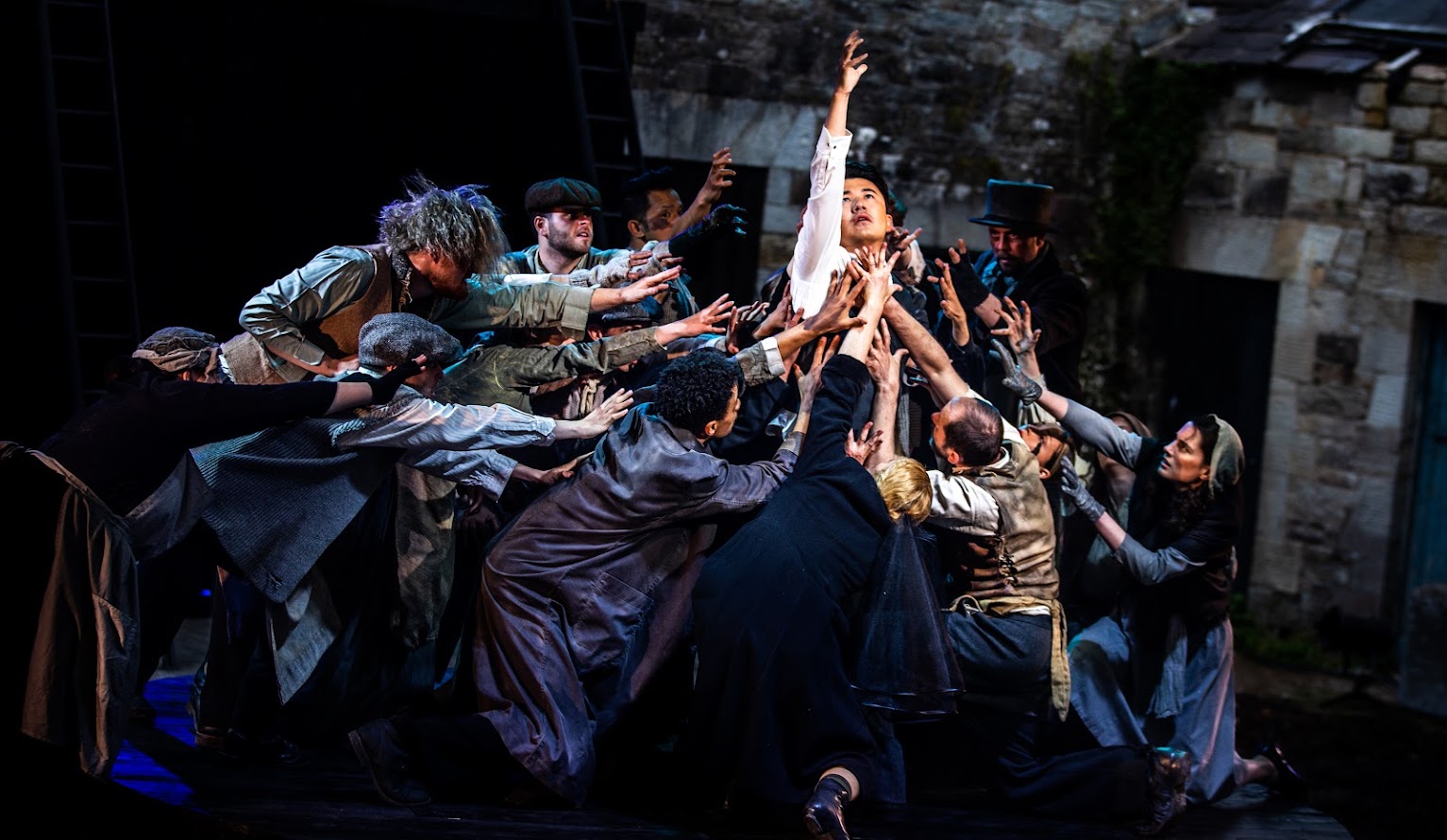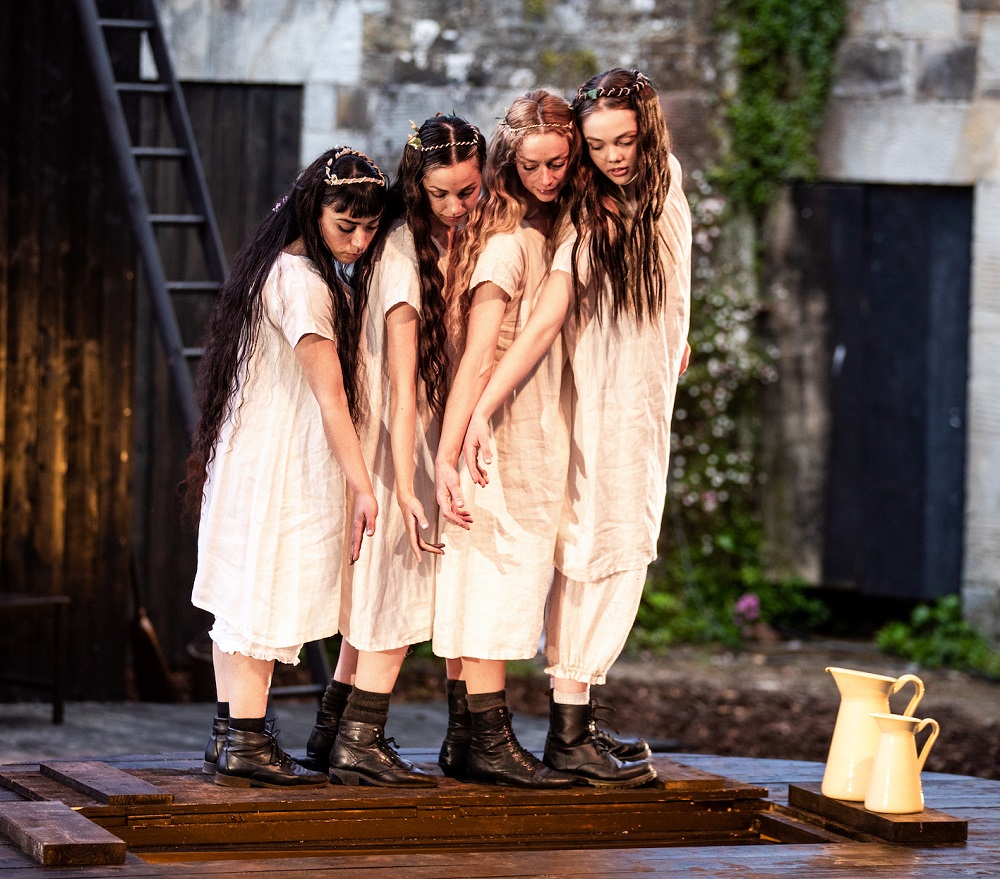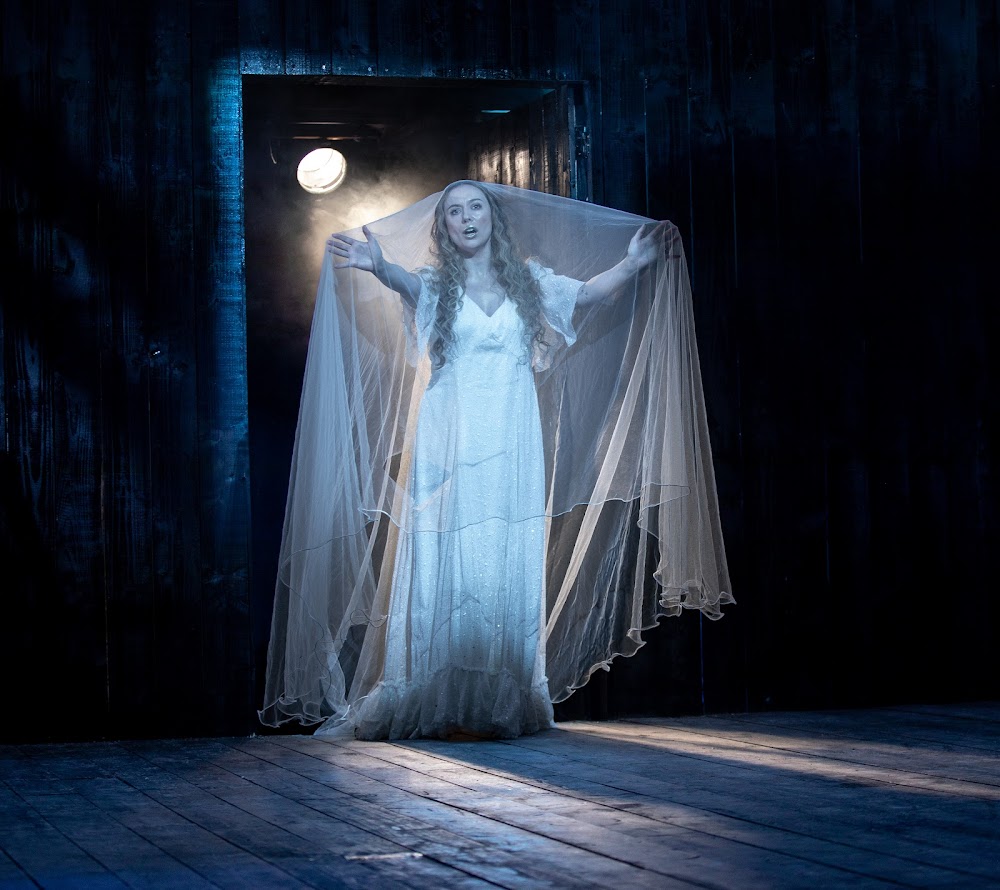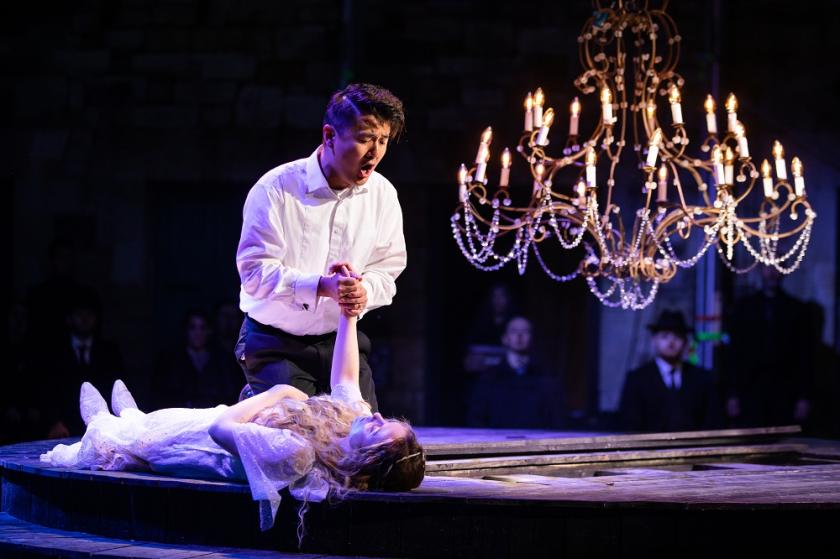"Elysian" is the best way to describe the dream gardens of Ireland's Lismore Castle in early June: lupins, alliums and peonies rampant in endless herbaceous borders, supernatural perspectives towards the main building on various levels. This year’s Blackwater Valley Opera Festival production of Gluck's Orfeo ed Euridice, not so much: easily adjustable circumstances worked too often against talented performers in the converted stables space pressed into service once a year.
Let’s start with the placement of the Irish Baroque Orchestra, so phenomenal under conductor Peter Whelan playing for the Irish National Opera in Vivaldi's Bajazet (the team deservedly won an Olivier Award). They were the spur for making a rather complex journey from Dublin via Waterford to the heart of the wooded valley. Housed to one side of audience and open stage in what could have been a byre, without resonance or the option to blend – simple acoustic adjustments could have made all the difference – and with poor sightlines to the main action, their disadvantage rebounded on the singers: the 12-strong young chorus needed to be able to see Whelan in the rush of anger the Furies unleash on Orfeo as he descends to retrieve Euridice (pictured below). Turned to the other side, they couldn’t keep time with their conductor; I'm told screens were visible, but in the heat of the moment they must have been ignored.  Then there was the singing of Euridice, very fine when she finally appeared in Act Three, but rather unwelcome in all-too-clear vocal exercises through much of Act One and the first scene of Act Two. Had she done this on previous nights? Why did no-one involved rush round and tell her to stop?
Then there was the singing of Euridice, very fine when she finally appeared in Act Three, but rather unwelcome in all-too-clear vocal exercises through much of Act One and the first scene of Act Two. Had she done this on previous nights? Why did no-one involved rush round and tell her to stop?
Putting David Bolger, Artistic Director and co-founder of CoisCéim Dance Company, in charge of what is in essence an 18th century opera-ballet, was a bold move. His team of eight charismatic dancers rose to the challenge of the set pieces in diverse nimble and original ways; but I rather thought before consulting the programme that we had a brilliant choreographer at odds with an over-ambitious director. Bolger’s ideas on the latter front were hit and miss: a mourning ritual in costumes stylishly designed by Maree Kearns that worked; Les Mis chorus people as Furies – class division? – ushered in by a noisy sweeping away of funeral flowers drawing focus away from the orchestral blasts at the start of Act 2, which didn’t.  Surely, too, it was a mistake to have a break before the balm of the Elysian Fields, which should strike us musically by immediate contrast, and the Grecian water-ceremony was original in itself (pictured above), but only half in tune with the verdant landscapes, complete with birdsong, conjured up by the tone-painting of Orfeo’s “Che puro ciel”.
Surely, too, it was a mistake to have a break before the balm of the Elysian Fields, which should strike us musically by immediate contrast, and the Grecian water-ceremony was original in itself (pictured above), but only half in tune with the verdant landscapes, complete with birdsong, conjured up by the tone-painting of Orfeo’s “Che puro ciel”.
The crucial journey back to the world in the first half of Act Three worked best at every level. Before it, Chinese countertenor Meili Li hardly seemed the ideal choice to build a production around (the opera can’t succeed without a strong Orfeo). Choppy lines, some trumpet notes but nothing in the lower register, slightly tentative acting – all these were banished by the time of Orfeo’s desperation at his Euridice’s pleas to him to engage with her.
 Aoife Gibney as Euridice (pictured left) was the most accomplished of the three soloists – light soprano Kelli-Ann Masterson as Amor needs to work on her Italian – and conveyed the meaning of every line (ironically, since the supertitles which hadn’t worked before the interval, when we needed them, were now restored). And then Li delivered something altogether more personable in Gluck’s best-known number, “Che farò senza Euridice”: a riveting delivery of schizoid switches between soft-voiced tenderness and lacerating grief, complete with well-judged ornamentations. If only Bolger hadn’t decided to end with predictable alienation – Orfeo drifts away as all attention is turned towards the restored-to-life queen of the moment, Euridice – then the sense of late-flowering elation would have been complete. And Eamon Fox’s lighting design as night fell had drawn us further into involvement.
Aoife Gibney as Euridice (pictured left) was the most accomplished of the three soloists – light soprano Kelli-Ann Masterson as Amor needs to work on her Italian – and conveyed the meaning of every line (ironically, since the supertitles which hadn’t worked before the interval, when we needed them, were now restored). And then Li delivered something altogether more personable in Gluck’s best-known number, “Che farò senza Euridice”: a riveting delivery of schizoid switches between soft-voiced tenderness and lacerating grief, complete with well-judged ornamentations. If only Bolger hadn’t decided to end with predictable alienation – Orfeo drifts away as all attention is turned towards the restored-to-life queen of the moment, Euridice – then the sense of late-flowering elation would have been complete. And Eamon Fox’s lighting design as night fell had drawn us further into involvement.
It's admirable that BVOF sees participation and learning for young singers as part of its programme, but the chorus was almost sabotaged by a foghorn bass. An out-of-tune harp among the instruments was not the consummate performer’s fault, though – the damp day had played havoc with one of the strings – and the chalumeau (early clarinet) solo echoing Orfeo in Act 1 certainly added character. It seemed a shame to be purist about the original 1762 Vienna version; to do without the minor-key flute solo in the "Dance of the Blessed Spirits", added for Paris in 1774 feels as incomplete as Mozart's Don Giovanni without Donna Elvira's "Mi tradì" (a Vienne addition to the Prague original).
I’d love to have been able to stay for the final event last night, though – Handel from the IBO and Whelan working with two Spanish singers in a more promising rustic acoustic – and it’s clear that the festival as a whole has been well planned by artistic director Dieter Kaegi. And – since these things matter – I must say that the picnics were excellent, too. Here’s to tweaks to make next year perfect.














Add comment